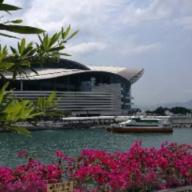What is ERP?
2007-10-12 3:37 am
Can anyone tell me the meaning of ERP (Enterprise Resources Planning)? How it work in organization?
回答 (3)
2007-10-12 4:37 am
✔ 最佳答案
The planning and management of all the resources in an enterprise. 2. A multi-module software system that supports enterprise resource planning. An ERP system typically includes a relational database and applications for managing purchasing, inventory, personnel, customer service, shipping, financial planning, and other important aspects of the business. (ERP) 企業資源策劃系統 not only offers a high-level view of all business operations, it also integrates key business and management functions and standardizes processes across business units; thus, eliminating inefficiencies, centralizing management control and enhancing corporate transparency.
http://www.atb-bremen.de/projects/prosme/Doku/oqim/erp_old.htm
http://en.wikipedia.org/wiki/Enterprise_resource_planning
2007-10-15 7:21 am
我不想copy網上的資料, 如果你是想了解什麼是erp, 你可以找網上找尋它的定義. 我只希望在介紹一下, erp是由70年代的mrp演變而來, 由於在生產上, 很多需要接合的程序, 例如時間, 工序及庫存等等, 70年代有人用一個系統來處理, 後來加上採購, 生產, 會計等等, 變成閉環系MRP及MRPII等, 又用於電腦上的軟件, 但經過長時間的需求, 漸漸發現不足使用, 所以擴張到企業與企業間的使用, 包括VMI, CRM等等. 它是一套由企業整體處理的計劃, 由上至管理層至下至生產工都根據資料按章工作, 不會因為不同的時間下來運作, 所以各職務都可以共同了解自己需要的資料, 而管理層更可以透過回饋(FEEDBACK)來更正及改善有關的問題. 但由於軟件跟企業的運作大多不同, 所以在上ERP時應考慮要做一次商業流程改善(BPR), 來合併其運作. 而ERP是如何在企業運作, 即我剛才提出上ERP的軟件時要做一個流程改善, 使企業本身與軟件的流程一至, 再培訓各員工, 因為ERP最重要是各層員工的參與, 如果有人不合作或不做, 基本上不能完成整個流程, 當大家可以適當地跟隨ERP要求處理事務, 他可以帶來很好的後果, 包括減少庫存, 縮短生產時間, 加強客戶關係等等, 是支援生產的一個很好的程序, 所以在世界級的生產工廠, ERP, LEAN MANUFACTURY,TQM三樣是缺一不可.
2007-10-12 4:36 am
Enterprise Resource Planning systems (ERPs) integrate (or attempt to integrate) all data and processes of an organization into a unified system. A typical ERP system will use multiple components of computer software and hardware to achieve the integration. A key ingredient of most ERP systems is the use of a unified database to store data for the various system modules.
If there's an application that represents the heart of an organization, it is ERP.
The initials stand for Enterprise Resource Planning, reflecting its origins in manufacturing. In that industry, a variety of resources come together to create a product, hence the use of the word "resources".
But it quickly became apparent that every industry relies on resources – not just materials, but people, money and information. As a result, ERP has grown to encompass multiple applications acting as modules within it, from accounting and human resources to manufacturing and supply chain. Information from many resources flows into the ERP system, and users in turn draw on that information for knowledge and perspective.
Just as "resources" has come to mean more than what it originally did, "enterprise" is a misnomer as well. At the heart of any company of any size is a financial and accounting system, and that system has to integrate with all the data sources of an organization, from spreadsheets, customer data and links to partners and suppliers.
圖片參考:http://upload.wikimedia.org/wikipedia/en/thumb/f/f4/MRP2.jpg/449px-MRP2.jpg
If there's an application that represents the heart of an organization, it is ERP.
The initials stand for Enterprise Resource Planning, reflecting its origins in manufacturing. In that industry, a variety of resources come together to create a product, hence the use of the word "resources".
But it quickly became apparent that every industry relies on resources – not just materials, but people, money and information. As a result, ERP has grown to encompass multiple applications acting as modules within it, from accounting and human resources to manufacturing and supply chain. Information from many resources flows into the ERP system, and users in turn draw on that information for knowledge and perspective.
Just as "resources" has come to mean more than what it originally did, "enterprise" is a misnomer as well. At the heart of any company of any size is a financial and accounting system, and that system has to integrate with all the data sources of an organization, from spreadsheets, customer data and links to partners and suppliers.
圖片參考:http://upload.wikimedia.org/wikipedia/en/thumb/f/f4/MRP2.jpg/449px-MRP2.jpg
參考: Grant, David; Richard Hall, Nick Wailes, Christopher Wright (March 2006). "The false promise of technological determinism: the case of enterprise resource planning systems". New Technology, Work & Employment 21 (1): 2–15.
收錄日期: 2021-04-25 20:25:54
原文連結 [永久失效]:
https://hk.answers.yahoo.com/question/index?qid=20071011000051KK02993


